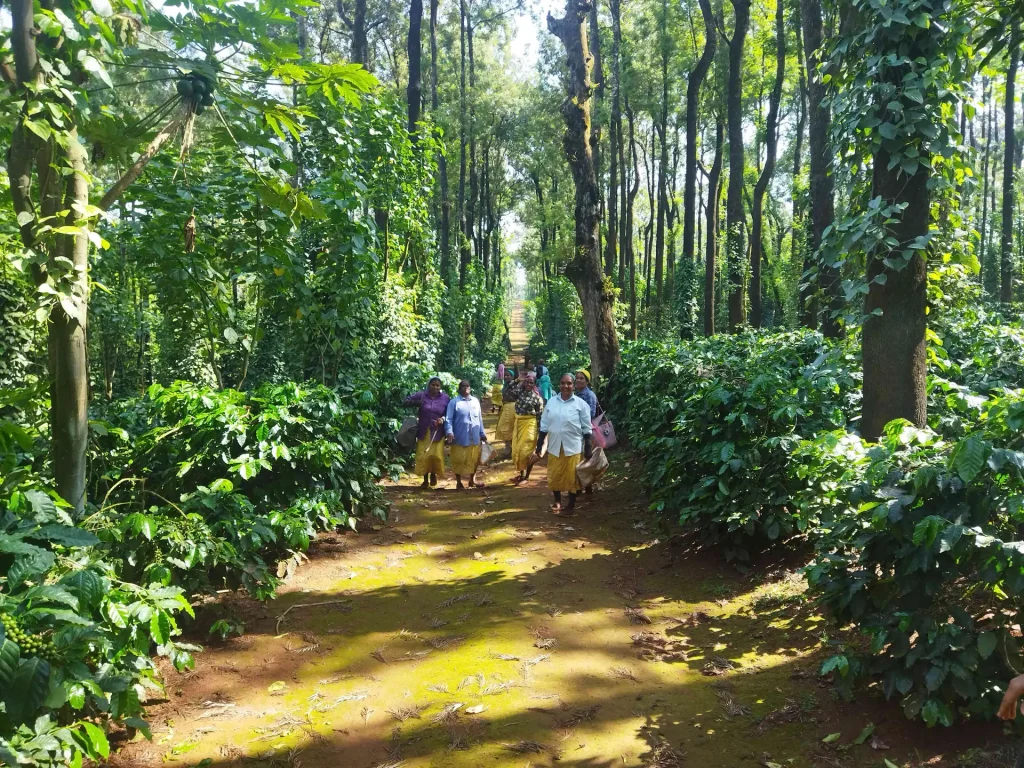This story was originally published on SourceUp.
On December 12th and 13th, 2024, a team from Hindustan Unilever (HUL), including their Sustainability and Procurement leads, and a former senior researcher from the Coffee Board of India, visited coffee-growing areas in the Western Ghats. The primary goal was to interact with field staff from implementation partners, engage with small coffee growers, and meet with leaders of farmers’ institutions to observe the field-level implementation of regenerative coffee production practices. IDH facilitated visits to projects led by SSRDPT, ECOM and SUCDEN in Kodagu and Hassan districts, which included a visit to series of demo farms, Farmer Institutions and discussions on regenerative agriculture practices.
The visit allowed the HUL team to gain first-hand insights into the opportunities, challenges and solutions in the coffee-growing regions. Key highlights included addressing human-animal conflicts, training farmers on the use of pheromone traps for pest control, promoting the planting of native trees for biodiversity, and demonstrating effective water usage practices. These observations are vital for understanding how regenerative practices can be successfully implemented on the ground, especially in the context of smallholder coffee farms. By engaging with local farmers and field staff, the visit highlighted the critical role of collaborative efforts in driving sustainability in the coffee sector.
The HUL team’s visit to the ICRL locations features their commitment to sustainable sourcing and the long-term viability of coffee production in India. Going forward, there is a strong emphasis on continuing support for these regenerative practices, with an ongoing focus on training, resource-sharing, and addressing environmental challenges. The partnership between HUL, JDE, IDH, ICRL Implementation Consortium, and local farmers will be pivotal in scaling these efforts to other regions, ensuring that regenerative coffee production practices are adopted on a broader scale, benefiting both the environment and local communities.
This impact story is related to the India Coffee Climate Resilient Landscape (ICCRL).
